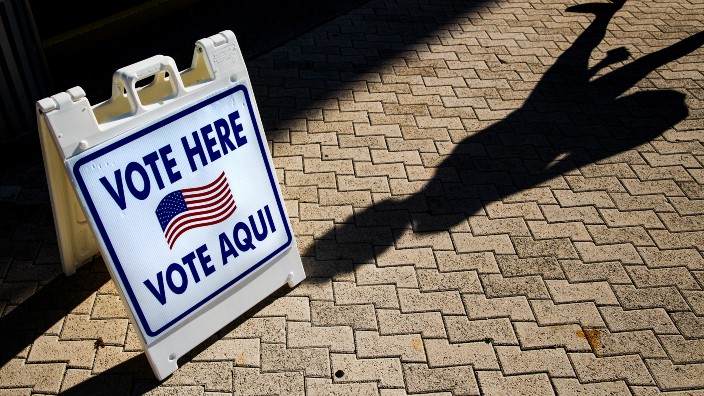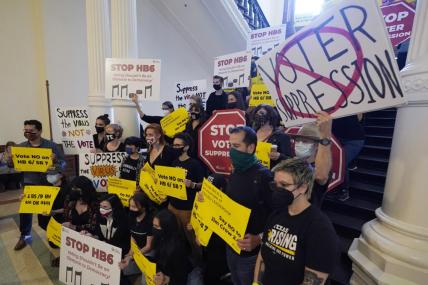Arkansas judge rules voting laws unfairly restrict access
Republicans pushed through the bills in response to claims of voter fraud in the 2020 election
New laws that made voting more difficult in Arkansas were deemed unconstitutional and struck down by a judge on Friday.
Pulaski County Circuit Judge Wendell Griffen adjourned a week-long trial in which area advocacy groups challenged four laws that Republicans enacted residents questioned the integrity of the 2020 election, the Arkansas Democrat Gazette reports.
Critics of the four laws, introduced in 2021, say the additional voting requirements place an unfair burden on voters based upon speculative claims of voter fraud that remain unsubstantiated.

Per Arkansas Times, in a legal brief summarizing the ruling, Griffen said that concerns about election insecurity from the state raised in defense of the laws “are based entirely on conjecture and speculation. Conjecture and speculation, however plausible, cannot be permitted to supply the place of proof.”
According to the Gazette, the four laws include Act 249, requiring photocopies of voter IDs to be submitted in order for their provisional ballot votes to count. Voters previously only had to provide a statement under oath when casting the provisional ballot.
Act 728, per the Gazette, restricts the ability to stand within 100 feet of a polling site unless you are voting and bans people from handing out water or snacks at the polls.
According to the outlet, Act 736 reduces the number of ways election workers are allowed to cross-check voter signatures on absentee ballots, which critics say could unjustly penalize voters whose signatures are inconsistent due to arthritis and other ailments.
Act 973 changed the deadline to mail ballots from the Monday before an election to the Friday preceding an election, the report said.
Once testimony concluded during the trial, Brittany Edwards, Arkansas assistant attorney general, said each of the laws being contested fall within reasonable measures to prevent fraudulent voting activity and places a minimal impact on voters, per the Gazette.
Attorney Kevin Hamilton, who provided closing statements on behalf of the local voting rights advocates, disputed the basis of reasoning for each law, including one of Edwards’ claims that absentee voting is a “convenience,” when many voters are unable to participate any other way due to disabilities or other reasons.
After each side presented their case, Griffen said: “I’ve been listening in the past four days and I’ve read a whole lot of stuff,” adding, “I haven’t heard anybody say I saw electioneering. I’ve heard witnesses say we heard allegations, but we could not prove them and allegations cannot provide proof of compelling government interest.”
Griffen is expected to issue a written ruling in the coming week, the Gazette reported. The state is likely to appeal the ruling, as reported by the Times.
TheGrio is FREE on your TV via Apple TV, Amazon Fire, Roku, and Android TV. Please download theGrio mobile apps today!


